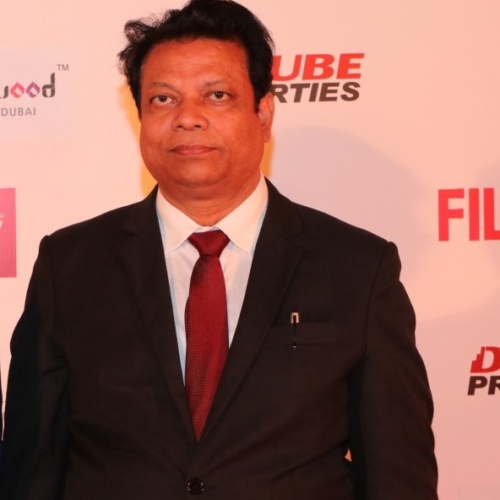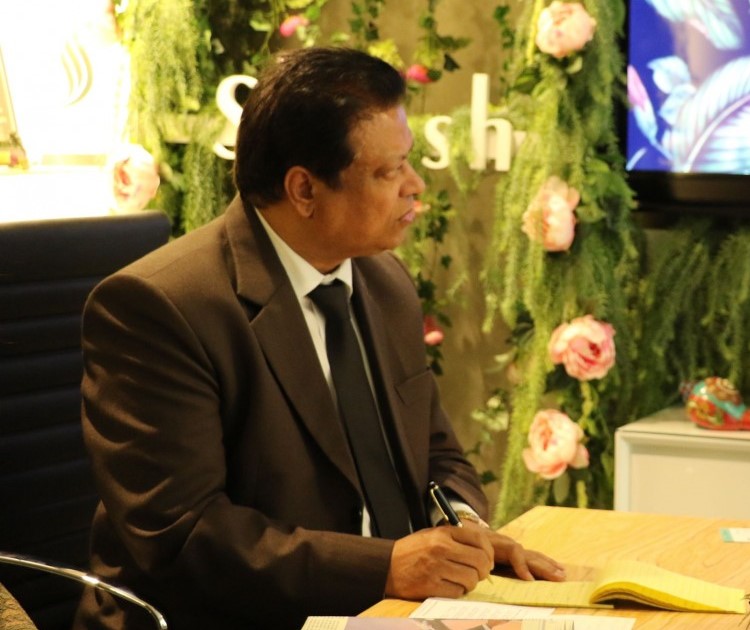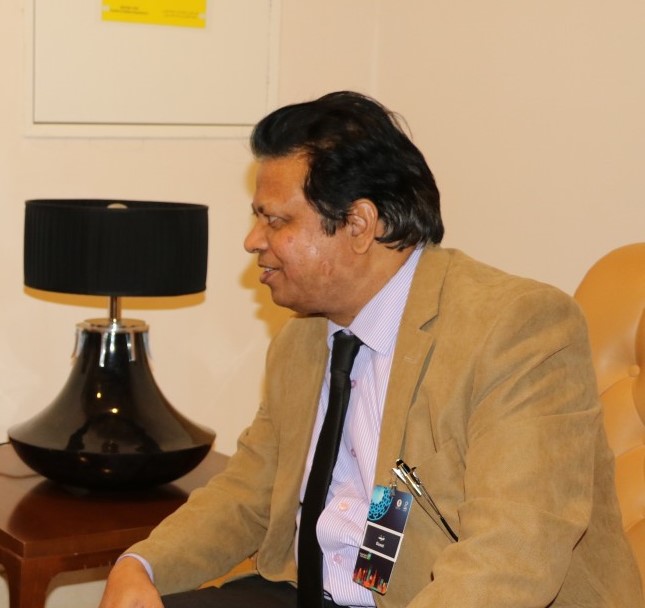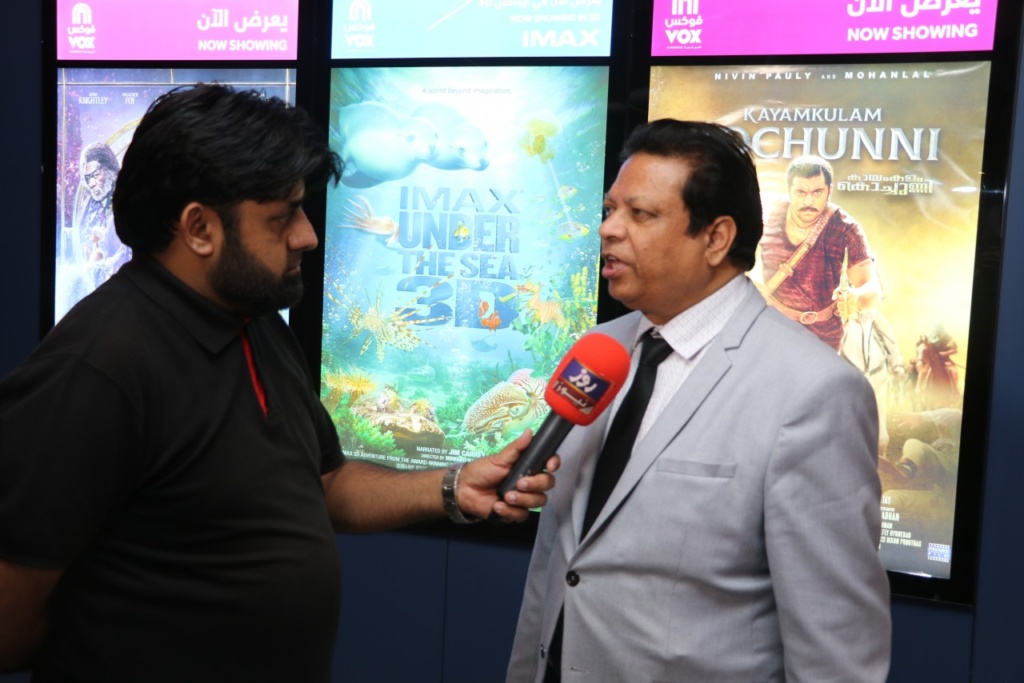Ghazanfar Ali Khan
Writer, Producer & Social Activist

Brief Info.
Current Position :- Bureau Chief (Arab news)
Residence :- Riyadh, Saudi Arabia
Birthplace :- Bihar, India
Qualification :- Mass Communication
Experience :- 25 Years
“You Don’t Start Out Writing Good Stuff. You Start Out Writing Crap And Thinking It’s Good Stuff, And Then Gradually You Get Better At It.
That’s Why I Say One Of The Most Valuable Traits Is Persistence.”
–Octavia E. Butler
A journalist, geo-strategist, social worker, and an avid reader. illustrious career in journalism spans three decades.

When he first became a journalist trainee with the largest Indian English daily The Times of India way back in 1986, his first major assignment was in the news room to correct news stories and rewrite them in news format. He has since then reported from the world’s major hotspots, including Saudi Arabia, India, the UK, Italy, Greece, Belgium, the Netherlands, Nepal, Bahrain, Switzerland, Indonesia, South Korea, Singapore, Maldives, Turkey, Thailand, UAE, China, Somalia and Germany. Ghazanfar Ali Khan has had the distinction to become the first foreign journalist working in Saudi Arabia to travel with later King Abdullah Bin Abdulaziz to India in 2006 and then to Turkey in 2009. Ghazanfar Ali Khan has also interviewed most of the top world leaders over the past three decades, including US President Bill Clinton, British Prime Minister Tony Blair, South African President Nelson Mandela, Indian Prime Minister Dr Manmohan Singh and Pakistani Prime Minister Benazir Bhutto. He is credited with interviewing about 500 prominent men and women including ministers, film actors, social activists and scientists.
Ghazanfar Ali Khan is currently the bureau chief of Arab News in Riyadh (Saudi Arabia). Born in Bihar (India), Ghazanfar Ali Khan was raised in a family of nine siblings. His father Abdul Hamid Khan was a police officer, whose services won high commendations from the British rule in pre-partitioned India. His mother Koraisha Khatoon belonged to an eminent old family of eastern India. Koraisha’s father Raj Mohammed Khan (Ghazanfar Ali Khan’s maternal grand father) was a military commander, who had the opportunity to lead an elite army in the World War II. Late Raj Mohammed Khan, whose World War II exploits are still remembered as folklore in eastern India and especially in his native Indian district of Siwas, was awarded about 60 acres of land, 5000 trees and high-tech weapons by the colonial British masters for his bravery in the war.
Ghazanfar Ali Khan lost his mother Koraisha in 2013, who was staying in Riyadh (Saudi Arabia). His wife Rizwana Khan is a senior language teacher at the Riyadh-based International Indian School (IISR). He has three children—an ever smiling daughter Zaina Hamid Khan, an actor son Osama Hamid Khan and a little bavo Lubna Hamid Khan. Ghazanfar Ali Khan’s grand father Ali Hussain Khan was a small landlord, who was extensively involved in farming in a village called Darauli in north Bihar province of India. Late Ali Hussain was the first to introduce farming with new technology without fertilizers in eastern Indian for which he is still known among his peers. Ghazanfar Ali Khan will also be remembered by future generations for his contributions to agriculture sector in olden days and that too in a tiny village of India, which is now a full-fledged town called Darauli. Hailing from a middle-class background, Khan was raised in a progressive and forward looking atmosphere, where education and hard work were of central focus. He received his Bachelor’s Degree with honors in English and then a Master’s Degree in English from India’s Aligarh Muslim University (AMU) in 1984. He then studied journalism and received a Postgraduate Diploma in Journalism form the Management Promotion Institute of New Delhi. While studying at AMU, he was president of the prestigious Raleigh Society of AMU English Department besides being the secretary of M.M. Hall Literary Society. He was also the chief editor of his hostel’s magazine called “The Mohsin”. Khan had the distinction to work as member of the AMU Central Magazine as well. After completion of his studies in AMU, a prestigious central university nicknamed as Oxford of the East, Ghazanfar Ali Khan returned to Bihar and joined “The Times of India” and later “The Hindustan Times”—the two largest newspapers of India. He then joined a journal in Mumbai before shifting to Riyadh (Saudi Arabia) as an editor of Riyadh Daily, a daily English newspaper, way back in 1992. In 1993, he joined Arab News, the largest English daily of the Kingdom.
As a specialist on international, political, and strategic issues, he has also lectured widely and his articles have been published in some national and international publications. A prominent journalist well known in the Middle East as well as in India, Ghazanfar Ali Khan has written and published about 20,000 reports, news stories and features in different publications including “Arab News”, “The Diplomat” a political journal of the Saudi Ministry of Foreign Affairs; and “Ahlan Wasahlan”, which is the in-flight magazine of Saudi Arabian Airlines (Saudia). Many of his articles and stories were also published in the English daily “The Hindustan Times” and “The Nation and The World”, a journal which ceased publication after the death of its publisher Sayyid Hamid, former vice chancellor of AMU, who died in early 2015. Ghazanfar Ali Khan was awarded Saudi Arabia’s AN Best Reporter Award’ in 1995 by Arab News, European Union Journalist Award in 2009, and was nominated as one of finalists for the Daniel Pearl Award in Geneva. Ghazanfar Ali Khan is also the consulting and contributing editor for “The Diplomat”, a magazine published by the Ministry of Foreign Affairs, Saudi Arabia and “The Chronicle of Higher Education” another magazine published by Ministry of Higher Education, Saudi Arabia. Ghazanfar Ali Khan has won several laurels and commendations for his outstanding achievements in the field of journalism and social services. The list of awards, trophies and commendations conferred on Ghazanfar Ali Khan is unending. He was also member of the jury for several journalism awards including Samir Foundation Award in Lebanon in 2013. He has also been involved in making some highly-inspiring video films and documentaries on themes like environment, conservation, water, education and diplomacy.


